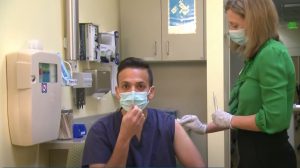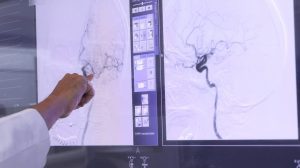NEW YORK (Reuters Health) – Urine testing for leucine-rich alpha-2-glycoprotein and other biomarkers may improve the ability of doctors to diagnose acute appendicitis, according to a report in the June 23rd online issue of the Annals of Emergency Medicine.
“The use of high-resolution CT and ultrasonography has led to improvements in the diagnosis of acute appendicitis, with respect to both the rates of complications and unnecessary appendectomies,” Dr. Alex Kentsis, of Children’s Hospital Boston, and co-reseachers note. “However, significant diagnostic challenges remain, largely because of the nonspecific nature of signs and symptoms of many conditions that can mimic acute appendicitis.”
Thus, the authors note, there remains a need for tests that can reliably identify acute appendicitis.
In the current study, the researchers used high-accuracy mass spectrometry to profile the proteins found in children with acute appendicitis versus those seen in their peers with other abdominal pain conditions. Fifty-seven candidate markers were evaluated in 67 children, including 37% with appendicitis.
Calgranulin A, alpha-1-acid glycoprotein 1, and leucine-rich alpha-2-glycoprotein had the best diagnostic performance, with area under the ROC curve values of 0.84, 0.84, and 0.97, respectively.
Leucine-rich alpha-2-glycoprotein was increased in diseased appendices and its expression was directly related to disease severity, the authors note.
“This study will not change clinical practice but provides promising evidence of potential biomarkers useful in the diagnosis of appendicitis,” the report concludes. “Further testing of the utility of these biomarkers is needed.”
Reference:
Ann Emerg Med 2009.




